Fleurs du Mal Magazine



Song of the banner
at daybreak
Poet
O a new song, a free song,
Flapping, flapping, flapping, flapping, by sounds, by voices clearer,
By the wind’s voice and that of the drum,
By the banner’s voice and child’s voice and sea’s voice and father’s voice,
Low on the ground and high in the air,
On the ground where father and child stand,
In the upward air where their eyes turn,
Where the banner at daybreak is flapping.
Words! bookwords! what are you?
Words no more, for hearken and see,
My song is there in the open air, and I must sing,
With the banner and pennant a-flapping.
I’ll weave the chord and twine in,
Man’s desire and babe’s desire, I’ll twine them in, I’ll put in life,
I’ll put the bayonet’s flashing point, I’ll let bullets and slugs whizz,
(As one carrying a symbol and menace far into the future,
Crying with trumpet voice, _Arouse and beware! Beware and arouse!_)
I’ll pour the verse with streams of blood, full of volition, full of joy.
Then loosen, launch forth, to go and compete,
With the banner and pennant a-flapping.
Pennant
Come up here, bard, bard,
Come up here, soul, soul,
Come up here, dear little child,
To fly in the clouds and winds with me, and play with the measureless light.
Child
Father what is that in the sky beckoning to me with long finger?
And what does it say to me all the while?
Father
Nothing my babe you see in the sky,
And nothing at all to you it says–but look you my babe,
Look at these dazzling things in the houses, and see you the money-shops opening,
And see you the vehicles preparing to crawl along the streets with goods;
These, ah these, how valued and toil’d for these!
How envied by all the earth.
Poet
Fresh and rosy red the sun is mounting high,
On floats the sea in distant blue careering through its channels,
On floats the wind over the breast of the sea setting in toward land,
The great steady wind from west or west-by-south,
Floating so buoyant with milk-white foam on the waters.
But I am not the sea nor the red sun,
I am not the wind with girlish laughter,
Not the immense wind which strengthens, not the wind which lashes,
Not the spirit that ever lashes its own body to terror and death,
But I am that which unseen comes and sings, sings, sings,
Which babbles in brooks and scoots in showers on the land,
Which the birds know in the woods mornings and evenings,
And the shore-sands know and the hissing wave, and that banner and pennant,
Aloft there flapping and flapping.
Child
O father it is alive–it is full of people–it has children,
O now it seems to me it is talking to its children,
I hear it–it talks to me–O it is wonderful!
O it stretches–it spreads and runs so fast–O my father,
It is so broad it covers the whole sky.
Father
Cease, cease, my foolish babe,
What you are saying is sorrowful to me, much it displeases me;
Behold with the rest again I say, behold not banners and pennants aloft,
But the well-prepared pavements behold, and mark the solid-wall’d houses.
Banner and Pennant
Speak to the child O bard out of Manhattan,
To our children all, or north or south of Manhattan,
Point this day, leaving all the rest, to us over all–and yet we know not why,
For what are we, mere strips of cloth profiting nothing,
Only flapping in the wind?
Poet
I hear and see not strips of cloth alone,
I hear the tramp of armies, I hear the challenging sentry,
I hear the jubilant shouts of millions of men, I hear Liberty!
I hear the drums beat and the trumpets blowing,
I myself move abroad swift-rising flying then,
I use the wings of the land-bird and use the wings of the sea-bird, and look down as from a height,
I do not deny the precious results of peace, I see populous cities with wealth incalculable,
I see numberless farms, I see the farmers working in their fields or barns,
I see mechanics working, I see buildings everywhere founded, going up, or finished,
I see trains of cars swiftly speeding along railroad tracks drawn by the locomotives,
I see the stores, depots, of Boston, Baltimore, Charleston, New Orleans,
I see far in the West the immense area of grain, I dwell awhile hovering,
I pass to the lumber forests of the North, and again to the Southern plantation, and again to California;
Sweeping the whole I see the countless profit, the busy gatherings, earn’d wages,
See the Identity formed out of thirty-eight spacious and haughty
States, (and many more to come,)
See forts on the shores of harbors, see ships sailing in and out;
Then over all, (aye! aye!) my little and lengthen’d pennant shaped like a sword,
Runs swiftly up indicating war and defiance–and now the halyards have rais’d it,
Side of my banner broad and blue, side of my starry banner,
Discarding peace over all the sea and land.
Banner and Pennant
Yet louder, higher, stronger, bard! yet farther, wider cleave!
No longer let our children deem us riches and peace alone,
We may be terror and carnage, and are so now,
Not now are we any one of these spacious and haughty States, (nor any five, nor ten,)
Nor market nor depot we, nor money-bank in the city,
But these and all, and the brown and spreading land, and the mines below, are ours,
And the shores of the sea are ours, and the rivers great and small,
And the fields they moisten, and the crops and the fruits are ours,
Bays and channels and ships sailing in and out are ours–while we over all,
Over the area spread below, the three or four millions of square miles, the capitals,
The forty millions of people,–O bard! in life and death supreme,
We, even we, henceforth flaunt out masterful, high up above,
Not for the present alone, for a thousand years chanting through you,
This song to the soul of one poor little child.
Child
O my father I like not the houses,
They will never to me be any thing, nor do I like money,
But to mount up there I would like, O father dear, that banner I like,
That pennant I would be and must be.
Father
Child of mine you fill me with anguish,
To be that pennant would be too fearful,
Little you know what it is this day, and after this day, forever,
It is to gain nothing, but risk and defy every thing,
Forward to stand in front of wars–and O, such wars!–what have you to do with them?
With passions of demons, slaughter, premature death?
Banner
Demons and death then I sing,
Put in all, aye all will I, sword-shaped pennant for war,
And a pleasure new and ecstatic, and the prattled yearning of children,
Blent with the sounds of the peaceful land and the liquid wash of the sea,
And the black ships fighting on the sea envelop’d in smoke,
And the icy cool of the far, far north, with rustling cedars and pines,
And the whirr of drums and the sound of soldiers marching, and the hot sun shining south,
And the beach-waves combing over the beach on my Eastern shore, and my Western shore the same,
And all between those shores, and my ever running Mississippi with bends and chutes,
And my Illinois fields, and my Kansas fields, and my fields of Missouri,
The Continent, devoting the whole identity without reserving an atom,
Pour in! whelm that which asks, which sings, with all and the yield of all,
Fusing and holding, claiming, devouring the whole,
No more with tender lip, nor musical labial sound,
But out of the night emerging for good, our voice persuasive no more,
Croaking like crows here in the wind.
Poet
My limbs, my veins dilate, my theme is clear at last,
Banner so broad advancing out of the night, I sing you haughty and resolute,
I burst through where I waited long, too long, deafen’d and blinded,
My hearing and tongue are come to me, (a little child taught me,)
I hear from above O pennant of war your ironical call and demand,
Insensate! insensate! (yet I at any rate chant you,) O banner!
Not houses of peace indeed are you, nor any nor all their prosperity,
(if need be, you shall again have every one of those houses to destroy them,
You thought not to destroy those valuable houses, standing fast, full of comfort, built with money,
May they stand fast, then? not an hour except you above them and all stand fast;)
O banner, not money so precious are you, not farm produce you, nor the material good nutriment,
Nor excellent stores, nor landed on wharves from the ships,
Not the superb ships with sail-power or steam-power, fetching and carrying cargoes,
Nor machinery, vehicles, trade, nor revenues–but you as henceforth I see you,
Running up out of the night, bringing your cluster of stars, (ever-enlarging stars,)
Divider of daybreak you, cutting the air, touch’d by the sun, measuring the sky,
(Passionately seen and yearn’d for by one poor little child,
While others remain busy or smartly talking, forever teaching thrift, thrift;)
O you up there! O pennant! where you undulate like a snake hissing so curious,
Out of reach, an idea only, yet furiously fought for, risking bloody death, loved by me,
So loved–O you banner leading the day with stars brought from the night!
Valueless, object of eyes, over all and demanding all–(absolute owner of all)–O banner and pennant!
I too leave the rest–great as it is, it is nothing–houses, machines are nothing–I see them not,
I see but you, O warlike pennant! O banner so broad, with stripes, I sing you only,
Flapping up there in the wind.
Walt Whitman
(1819 – 1892)
Song of the banner at daybreak
From: Leaves of grass
• fleursdumal.nl magazine
More in: Archive W-X, Archive W-X, Whitman, Walt
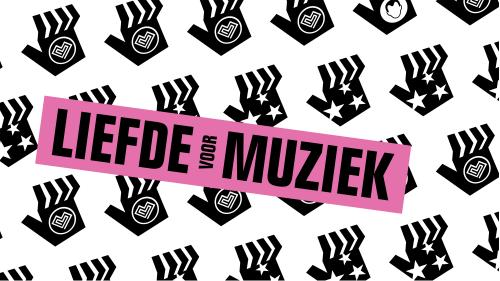
De campagne ‘Liefde voor Muziek’ is een initiatief van de voltallige Nederlandse muziekindustrie. Ruim 3000 artiesten, organisaties en bedrijven uit de gehele breedte (pop, jazz, klassiek en elektronische muziek) van de muziekbranche steunen de campagne met hart en ziel.
In maart van dit jaar verstomde als gevolg van het coronavirus alle livemuziek in poppodia, concertzalen en op festivals even onverwachts als abrupt. Veel artiesten, gezonde bedrijven en ZZP’ers hebben geen omzet of inkomen meer. Tienduizenden banen en knowhow dreigen verloren te gaan. Nederland heeft geweldige muzikanten. Nationaal en internationaal succesvolle sterren in alle genres van de pop, dance en jazz. Deze kunnen optreden dankzij een groot ecosysteem van 150.000 professionals.
De organisatie van ‘LIEFDE VOOR MUZIEK’! wil de regering laten (in)zien hoe omvangrijk en divers de Nederlandse muziekindustrie is, wat haar culturele en economische waarde is.
Zij vragen de muziekliefhebber om de petitie ‘Liefde voor Muziek’ te tekenen. Laat weten dat je het voortbestaan van live muziek (festivals en concerten) in Nederland ook belangrijk vindt.
Meer informatie op website:

• fleursdumal.nl magazine
More in: # Music Archive, Art & Literature News, AUDIO, CINEMA, RADIO & TV, The talk of the town
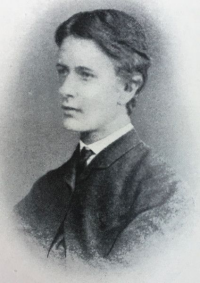
A Song
The world is young today:
Forget the gods are old,
Forget the years of gold
When all the months were May.
A little flower of Love
Is ours, without a root,
Without the end of fruit,
Yet ― take the scent thereof.
There may be hope above,
There may be rest beneath;
We see them not, but Death
Is palpable ― and Love.
Digby Mackworth Dolben
(1848 – 1867)
A Song
• fleursdumal.nl magazine
More in: Archive C-D, Archive C-D, Digby Mackworth Dolben
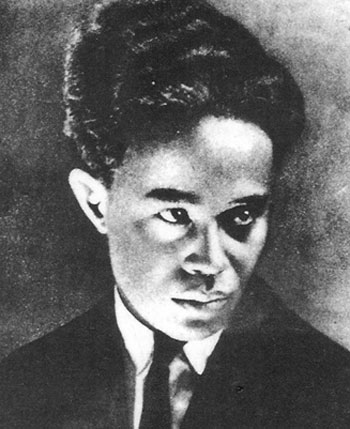
Le poème
Paroles pour chant, dis-tu, paroles pour chant,
ô langue de mes morts,
paroles pour chant, pour désigner
les idées que l’esprit a depuis longtemps conçues
et qui naissent enfin et grandissent
avec des mots pour langes –
des mots lourds encore de l’imprécision de l’alphabet,
et qui ne peuvent pas encore danser avec le vocabulaire,
n’étant pas encore aussi souples que les phrases ordonnées,
mais qui chantent déjà aux lèvres
comme un essaim de libellules bleues au bord d’un fleuve
salue le soir.
Paroles pour chant, dis-tu, paroles pour chant,
paroles pour chant, pour désigner
le frêle écho du chant intérieur
qui s’amplifie et retentit,
tentant de charmer le silence du livre
et les landes de la mémoire,
ou les rives désertes des lèvres
et l’angoisse des cœurs.
Et les paroles deviennent de plus en plus vivantes,
que tu croyais en quête du Chant ;
mais elles deviennent aussi de plus en plus fluides et ténues,
comme cette brise qui vient des palmiers lointains
pour mourir sur les cimes sourcilleuses.
Elles deviennent davantage des chants,
elles deviennent elles-mêmes – ce qu’elles ont toujours été
jusqu’ici, en vérité.
Et je voudrais changer, je voudrais rectifier
et dire :
chants en quête de paroles
pour peupler le silence du livre
et planter les landes de la mémoire,
ou pour semer des fleurs aux rives désertes des lèvres
et délivrer les cœurs,
ô langue de mes morts
qui te modules aux lèvres d’un vivant
comme les lianes qui fleurissent les tombeaux.
Jean-Joseph Rabearivelo
(1901? 1903? – 1937)
Le poème (poème)
• fleursdumal.nl magazine
More in: Archive Q-R, Archive Q-R, Jean-Joseph Rabearivelo
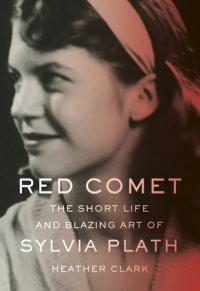 The highly anticipated new biography of Sylvia Plath that focuses on her remarkable literary and intellectual achievements, while restoring the woman behind the long-held myths about her life and art.
The highly anticipated new biography of Sylvia Plath that focuses on her remarkable literary and intellectual achievements, while restoring the woman behind the long-held myths about her life and art.
With a wealth of never-before-accessed materials–including unpublished letters and manuscripts; court, police, and psychiatric records; and new interviews–Heather Clark brings to life the brilliant daughter of Wellesley, Massachusetts.
Sylvia Plath had poetic ambition from a very young age and was an accomplished, published writer of poems and stories even before she became a star English student at Smith College in the early 1950s. Determined not to read Plath’s work as if her every act, from childhood on, was a harbinger of her tragic fate, Clark here evokes a culture in transition, in the shadow of the atom bomb and the Holocaust, as she explores Plath’s world: her early relationships and determination not to become a conventional woman and wife; her conflicted ties to her well-meaning, widowed mother; her troubles at the hands of an unenlightened mental-health industry; her Cambridge years and thunderclap meeting with Ted Hughes, a marriage of true minds that would change the course of poetry in English; and much more.
Clark’s clear-eyed sympathy for Hughes, his lover Assia Wevill, and the other demonized players in the arena of Plath’s suicide promotes a deeper understanding of her final days, with their outpouring of first-rate poems. Along with illuminating readings of the poems themselves, Clark’s meticulous, compassionate research brings us closer than ever to the spirited woman and visionary artist who blazed a trail that still lights the way for women poets the world over.
Heather Clark earned her bachelor’s degree in English Literature from Harvard University and her doctorate in English from Oxford University. Her awards include a National Endowment for the Humanities Public Scholar Fellowship; a Leon Levy Biography Fellowship at the City University of New York; and a Visiting U.S. Fellowship at the Eccles Centre for American Studies, British Library. A former Visiting Scholar at the Oxford Centre for Life-Writing, she is the author of The Grief of Influence: Sylvia Plath and Ted Hughes and The Ulster Renaissance: Poetry in Belfast 1962-1972. Her work has appeared in publications including Harvard Review and The Times Literary Supplement, and she recently served as a consultant for the BBC documentary Sylvia Plath: Life Inside the Bell Jar. She divides her time between Chappaqua, New York, and Yorkshire, England, where she is Professor of Contemporary Poetry at the University of Huddersfield.
Red Comet
The Short Life and Blazing Art of Sylvia Plath
By Heather Clark
Hardcover
1152 Pages
$40.00
Oct 06, 2020
ISBN 9780307961167
Published by Knopf
$40.00
# new biography
• fleursdumal.nl magazine
More in: #Biography Archives, - Archive Tombeau de la jeunesse, - Book Lovers, - Book News, Archive C-D, Archive G-H, Archive O-P, Archive O-P, Plath, Sylvia
 Tussen zijn vijftiende en twintigste droomde Frans Kellendonk (1951-1990), naderhand uitgegroeid tot een van de belangrijkste schrijvers van zijn generatie, niet alleen van literaire roem, hij ambieerde ook een carrière als singer-songwriter. Hij schreef tientallen liedjes, zijn vriend Leonard de Vos maakte er de muziek bij.
Tussen zijn vijftiende en twintigste droomde Frans Kellendonk (1951-1990), naderhand uitgegroeid tot een van de belangrijkste schrijvers van zijn generatie, niet alleen van literaire roem, hij ambieerde ook een carrière als singer-songwriter. Hij schreef tientallen liedjes, zijn vriend Leonard de Vos maakte er de muziek bij.
Met de begeleidende brieven en fragmenten uit zijn bijdragen aan diverse schoolkranten van het Nijmeegse Dominicuscollege geven Kellendonks liedjes een authentiek beeld van het puberbestaan tijdens de jaren zestig. Het was de periode waarin Bob Dylan furore maakte, de Amerikaanse bemoeienis met Vietnam op wereldwijde protesten stuitte en de anti-autoritaire provobeweging de Hollandse huiskamers danig wist te choqueren.
Jong in de jaren zestig roept de sfeer op van bevlogen jongeren in tijden van sociale en culturele veranderingen.
Jaap Goedegebuure (1947), emeritus hoogleraar en literatuurcriticus, publiceerde in 2018 de positief ontvangen biografie van Frans Kellendonk. Eerder maakte hij met Oek de Jong een uitgave van Frans Kellendonks brieven, en bezorgde hij (met Rick Honings) een uitgebreide editie van Kellendonks Verzameld werk.
Jaap Goedegebuure
Jong in de jaren zestig
De muziek van Frans Kellendonk
Uitgever: Querido
Publicatiedatum: 02-04-2020
ISBN: 9789021421520
NUR: 320
156 pagina’s
Paperback
Prijs: € 15,00
# new books
fleursdumal.nl magazine
More in: # Music Archive, - Book News, - Book Stories, Archive G-H, Archive K-L, AUDIO, CINEMA, RADIO & TV, Frans Kellendonk, Jaap Goedegebuure

Courtisane
Mes bras se sont ouverts et se sont refermés,
J’ai bu tous les poisons aux coupes exaltantes,
Et si c’est un péché d’avoir beaucoup aimé,
Je veux le premier rang parmi les pénitentes!
Les plaisirs de la chair, se sont sur moi, posés,
La lèvre m’a meurtrie et la dent m’a blessée,
Je porte avec orgueil la trace des baisers,
Je n’ai rien désiré que d’être caressée.
Je ne regrette pas les beaux soirs innocents,
La calme pureté des coeurs de jeunes filles,
Moi qui ne peux calmer la fièvre de mon sang,
Ni l’éclair de mes yeux, quand la voolupté brille.
De l’amour prodigué le long des jours passés,
Des baisers pénétrants, sur les lèvres que j’aime,
De ces morceaux de fleurs, entre mes doigts froissés,
J’ai fait un pur collier de perles et de gemmes.
Je porte fièrement ce mystique joyau,
Dont l’éternel éclat me brûle jusqu’à l’âme:
Moi; que l’amour aura marquée à mon berceau,
J’entraîne vers sa loi, le cortège des femmes.
Emilienne d’Alençon
(1869-1946)
Courtisane
• fleursdumal.nl magazine
More in: Archive A-B, Archive A-B, d'Alençon, Émilienne
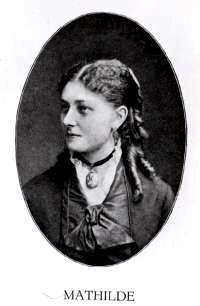
Aan Mathilde
Wanneer de moeder van het licht weêr licht,
En voor heur goud den zwarten mist doet wijken,
Dan laat ze ‘er stralen langs de bloemen strijken,
En dankbaar doet elk bloemeke zijn plicht.
Zoodra de bloem de lieve zon ziet prijken,
Dan wolkt ze wierook op in wolken dicht,
En geurenmoeder wordt het moederlicht…
Ik moet, Mathilde, u aan de zon gelijken!
Gij zijt de moeder van deez’ liederkrans:
Gij hebt dien met uw zonneblik geschapen
In ‘t zwarte hart; zoo ‘t glanst, ‘t is door úw glans.
Met uwe bloemen krans ik u de slapen,
Uw eigen schepping leg ik om uw hoofd;
Zoo zij uw naam voor eeuwiglijk geloofd! –
Jacques Perk
(1859 – 1881)
Aan Mathilde
• fleursdumal.nl magazine
More in: Archive O-P, CLASSIC POETRY, Jacques Perk
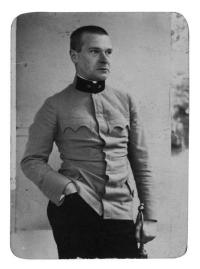
Die junge Magd
1
Oft am Brunnen, wenn es dämmert,
Sieht man sie verzaubert stehen
Wasser schöpfen, wenn es dämmert.
Eimer auf und niedergehen.
In den Buchen Dohlen flattern
Und sie gleichet einem Schatten.
Ihre gelben Haare flattern
Und im Hofe schrein die Ratten.
Und umschmeichelt von Verfalle
Senkt sie die entzundenen Lider.
Dürres Gras neigt im Verfalle
Sich zu ihren Füßen nieder.
2
Stille schafft sie in der Kammer
Und der Hof liegt längst verödet.
Im Hollunder vor der Kammer
Kläglich eine Amsel flötet.
Silbern schaut ihr Bild im Spiegel
Fremd sie an im Zwielichtscheine
Und verdämmert fahl im Spiegel
Und ihr graut vor seiner Reine.
Traumhaft singt ein Knecht im Dunkel
Und sie starrt von Schmerz geschüttelt.
Röte träufelt durch das Dunkel.
Jäh am Tor der Südwind rüttelt.
3
Nächtens übern kahlen Anger
Gaukelt sie in Fieberträumen.
Mürrisch greint der Wind im Anger
Und der Mond lauscht aus den Bäumen.
Balde rings die Sterne bleichen
Und ermattet von Beschwerde
Wächsern ihre Wangen bleichen.
Fäulnis wittert aus der Erde.
Traurig rauscht das Rohr im Tümpel
Und sie friert in sich gekauert.
Fern ein Hahn kräht. Übern Tümpel
Hart und grau der Morgen schauert.
4
In der Schmiede dröhnt der Hammer
Und sie huscht am Tor vorüber.
Glührot schwingt der Knecht den Hammer
Und sie schaut wie tot hinüber.
Wie im Traum trifft sie ein Lachen;
Und sie taumelt in die Schmiede,
Scheu geduckt vor seinem Lachen,
Wie der Hammer hart und rüde.
Hell versprühn im Raum die Funken
Und mit hilfloser Geberde
Hascht sie nach den wilden Funken
Und sie stürzt betäubt zur Erde.
5
Schmächtig hingestreckt im Bette
Wacht sie auf voll süßem Bangen
Und sie sieht ihr schmutzig Bette
Ganz von goldnem Licht verhangen.
Die Reseden dort am Fenster
Und den bläulich hellen Himmel.
Manchmal trägt der Wind ans Fenster
Einer Glocke zag Gebimmel.
Schatten gleiten übers Kissen,
Langsam schlägt die Mittagsstunde
Und sie atmet schwer im Kissen
Und ihr Mund gleicht einer Wunde.
6
Abends schweben blutige Linnen,
Wolken über stummen Wäldern,
Die gehüllt in schwarze Linnen,
Spatzen lärmen auf den Feldern.
Und sie liegt ganz weiß im Dunkel.
Unterm Dach verhaucht ein Girren.
Wie ein Aas in Busch und Dunkel
Fliegen ihren Mund umschwirren.
Traumhaft klingt im braunen Weiler
Nach ein Klang von Tanz und Geigen,
Schwebt ihr Antlitz durch den Weiler,
Weht ihr Haar in kahlen Zweigen.
Georg Trakl
(1887 – 1914)
Die junge Magd
Der Brenner, 3. Jg. (1913)
• fleursdumal.nl magazine
More in: - Archive Tombeau de la jeunesse, Archive S-T, Trakl, Georg, Trakl, Georg, WAR & PEACE
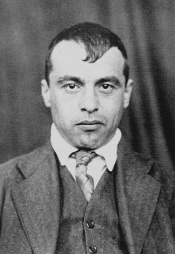
Morgens
Ein starker Wind sprang empor.
Öffnet des eisernen Himmels blutende Tore.
Schlägt an die Türme.
Hellklingend laut geschmeidig über die eherne Ebene der Stadt.
Die Morgensonne rußig. Auf Dämmen donnern Züge.
Durch Wolken pflügen goldne Engelpflüge.
Starker Wind über der bleichen Stadt.
Dampfer und Kräne erwachen am schmutzig fließenden Strom.
Verdrossen klopfen die Glocken am verwitterten Dom.
Viele Weiber siehst du und Mädchen zur Arbeit gehn.
Im bleichen Licht. Wild von der Nacht. Ihre Röcke wehn.
Glieder zur Liebe geschaffen.
Hin zur Maschine und mürrischem Mühn.
Sieh in das zärtliche Licht.
In der Bäume zärtliches Grün.
Horch! Die Spatzen schrein.
Und draußen auf wilderen Feldern
singen Lerchen.
Jakob van Hoddis
(1887 – 1942)
Morgens (Gedicht)
•fleursdumal.nl magazine
More in: Archive G-H, Archive G-H, Hoddis, Jakob van

Wachten op de perenval
Een boerengedicht
Tussen verse klaver en bloeiende netel
roestige val: de dreiging blijft. Aan de voetzolen
poldermodder, smeuïg en zwart.
Uit langse karren bulken ajuinen. Erachter houden
wielrenners zich uit de wind. Boeren klotsen klompen
over de deel. Er zit regen in de lucht.
Bezwangerd land. Fazanten schieten door de greppels.
Hoera: gloeit achter gindse wolk de zon niet weer?
Harken krabben van de tuin de jeuk weg.
Hé Adriaen van Grijpstraten, waar heb je toch mijn
zwingel gelaten? neuriet de knecht. Vergeten is
de landheer die hier dertig jaar geleden op de rozen piste
nog niet gans.
Bert Bevers
Uit: Onaangepaste tijden, Zinderend, Bergen op Zoom, 2006
Bert Bevers is a poet and writer who lives and works in Antwerp (Be)
• fleursdumal.nl magazine
More in: Archive A-B, Archive A-B, Bevers, Bert
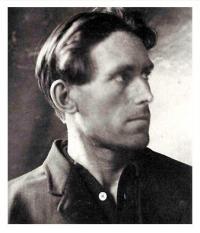
Workers of the World,
Awaken
Workers of the world, awaken!
Break your chains. demand your rights.
AII the wealth you make is taken
By exploiting parasites.
Shall you kneel in deep submission
From your cradles to your graves?
ls the height of your ambition
To be good and willing slaves?
CHORUS:
Arise, ye prisoners of starvation!
Fight for your own emancipation;
Arise, ye slaves of every nation.
In One Union grand.
Our little ones for bread are crying,
And millions are from hunger dying;
The end the means is justifying,
‘Tis the final stand.
If the workers take a notion,
They can stop all speeding trains;
Every ship upon the ocean
They can tie with mighty chains.
Every wheel in the creation,
Every mine and every mill ,
Fleets and armies of the nation,
Will at their command stand still.
Join the union, fellow workers,
Men and women, side by side;
We will crush the greedy shirkers
Like a sweeping, surging tide;
For united we are standing,
But divided we will fall;
Let this be our understanding —
“All for one and one for all.”
Workers of the world, awaken!
Rise in all your splendid might;
Take the wealth that you are making,
It belongs to you by right.
No one will for bread be crying,
We’ll have freedom, love and health.
When the grand red flag is flying
In the Workers’ Commonwealth.
Joe Hill
(1879-1915)
Workers of the World, Awaken
(song)
• fleursdumal.nl magazine
More in: # Music Archive, Archive G-H, Joe Hill, Workers of the World
Thank you for reading Fleurs du Mal - magazine for art & literature